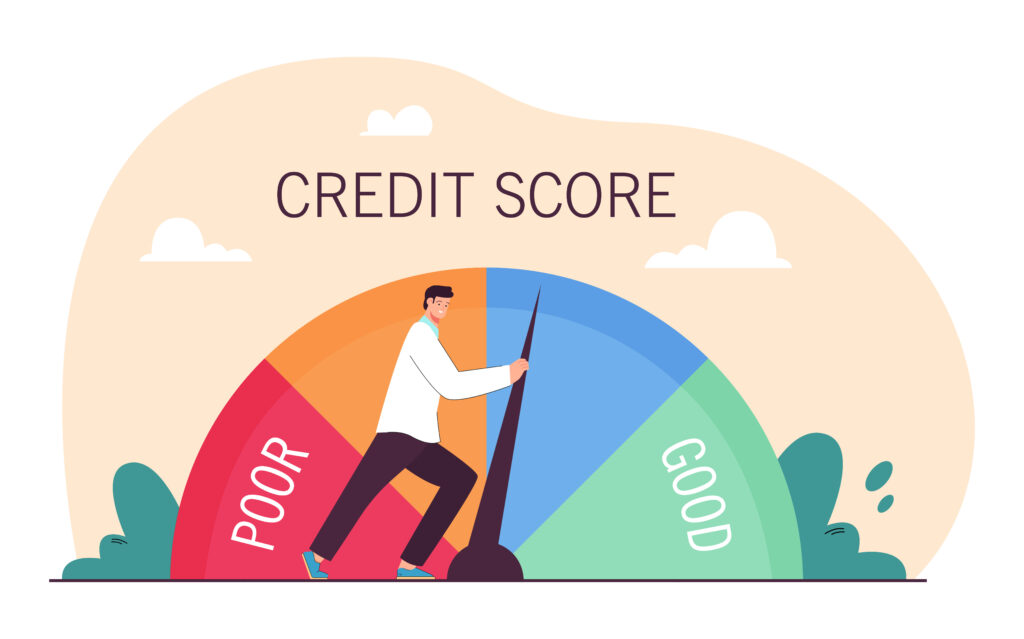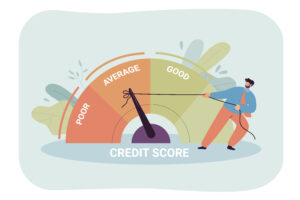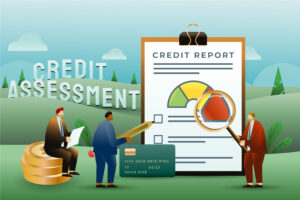Get Personal Loan with Low CIBIL Score: Complete Guide for Indians

Low CIBIL Score? Here’s How to Get a Personal Loan in India
Having a poor credit score doesn’t mean your financial journey ends here. Many Indians struggle with low CIBIL scores, but numerous banks and NBFCs still offer personal loans to help you meet your financial needs. This comprehensive guide will walk you through everything you need to know about securing a personal loan with a low CIBIL score.
Getting access to credit can be challenging if you have a weak financial history, but options do exist. In this blog, we will explore Get Personal Loan with Low CIBIL Score, understand Why Traditional Banks Reject Low CIBIL Score Applications, and review the Types of Personal Loans Available for Low CIBIL Score Borrowers and List of Lenders Offering Low CIBIL Score Personal Loans. We’ll also cover the Eligibility Criteria for Low CIBIL Score Personal Loans, discuss the Advantages and Disadvantages of Low CIBIL Score Personal Loans, and finally share Proven Strategies to Improve Your CIBIL Score so you can strengthen your chances of approval in the future.
Understanding CIBIL Score and Credit Rating System
Your CIBIL score is a three-digit number ranging from 300 to 900 that represents your creditworthiness. This score is calculated based on your credit history, repayment behavior, credit utilization, and length of credit history. While traditional banks prefer borrowers with scores above 750, many financial institutions now cater to individuals with lower scores.
CIBIL Score Ranges and Their Meanings:
- 300-549: Poor credit score, high risk
- 550-649: Fair credit score, moderate to high risk
- 650-749: Good credit score, acceptable risk
- 750-900: Excellent credit score, low risk
“A low CIBIL score today doesn’t define your financial future tomorrow. With the right strategy and responsible borrowing, you can rebuild your creditworthiness while meeting your immediate financial needs.”
Why Traditional Banks Reject Low CIBIL Score Applications
Banks consider multiple factors when evaluating loan applications. A low CIBIL score signals higher risk, leading to concerns about repayment ability. However, this risk assessment varies among lenders, and many NBFCs have developed specialized products for borrowers with challenged credit histories.
Traditional banks often reject applications because they follow strict risk management protocols. They prefer borrowers who demonstrate consistent repayment history and financial stability. However, this creates opportunities for alternative lenders who understand that credit scores can be improved with proper guidance and support.
“Every rejection is a redirection toward finding the right lender who understands your unique financial situation and offers tailored solutions.”
Types of Personal Loans Available for Low CIBIL Score Borrowers and List of Lenders Offering Low CIBIL Score Personal Loans

Secured Personal Loans
Secured personal loans require collateral such as fixed deposits, gold, property, or other valuable assets. These loans offer better approval chances for low CIBIL score borrowers because the collateral reduces lender risk. Interest rates are typically lower than unsecured loans, making them attractive options for those with poor credit scores.
Popular secured loan options include gold loans, loan against property, and loans against fixed deposits. These products allow you to access funds while gradually rebuilding your credit score through timely repayments.
“Secured loans transform your assets into opportunities, providing access to funds even when your credit score tells a different story.”
Unsecured Personal Loans from NBFCs
Many NBFCs specialize in providing unsecured personal loans to borrowers with CIBIL scores as low as 550-600. These lenders use alternative assessment methods, considering factors like employment stability, bank statements, and income consistency rather than relying solely on credit scores.
NBFCs like Bajaj Finserv, Tata Capital, and MoneyTap offer personal loans with flexible eligibility criteria. While interest rates may be higher, these loans provide immediate financial relief without requiring collateral.
“NBFCs bridge the gap between financial need and credit reality, offering hope where traditional banking falls short.”
Instant Digital Loans
Several fintech companies and digital lending platforms provide instant loans with minimal documentation. These platforms use AI-powered risk assessment tools that evaluate multiple data points beyond CIBIL scores, including digital footprints, transaction history, and behavioral patterns.
Apps like MoneyView, CASHe, and EarlySalary offer quick loan approvals, often within hours. Loan amounts typically range from ₹5,000 to ₹5 lakhs, making them suitable for emergency expenses and short-term financial needs.
“Technology democratizes access to credit, ensuring that your financial urgency doesn’t have to wait for traditional approval processes.”
P2P Lending Platforms
Peer-to-peer lending platforms connect borrowers directly with individual investors. These platforms often have more flexible credit requirements and consider personal stories behind credit challenges. Investors may be willing to fund loans based on comprehensive profiles rather than just credit scores.
Platforms like Faircent, LenDenClub, and i2iFunding offer alternative financing options. Interest rates vary based on risk assessment, but many borrowers with low CIBIL scores find better terms than traditional lenders offer.
“P2P lending humanizes finance, allowing your story and potential to matter more than your past credit mistakes.”
Comprehensive List of Lenders Offering Low CIBIL Score Personal Loans

| Lender | Minimum CIBIL Score | Interest Rate Range | Maximum Loan Amount | Processing Time |
|---|---|---|---|---|
| Bajaj Finserv | 600+ | 13% – 39% | ₹25 lakhs | 24-48 hours |
| Tata Capital | 550+ | 12% – 35% | ₹15 lakhs | 2-3 days |
| IIFL Finance | 600+ | 14% – 36% | ₹20 lakhs | 24-72 hours |
| MoneyTap | 650+ | 13% – 36% | ₹5 lakhs | Same day |
| Fullerton India | 600+ | 15% – 36% | ₹15 lakhs | 2-4 days |
| Capital First | 550+ | 16% – 39% | ₹10 lakhs | 3-5 days |
| Home Credit | 650+ | 18% – 42% | ₹3 lakhs | Same day |
| CASHe | 650+ | 18% – 45% | ₹4 lakhs | 15 minutes |
| MoneyView | 650+ | 16% – 36% | ₹10 lakhs | 24 hours |
| EarlySalary | 650+ | 20% – 48% | ₹5 lakhs | 10 minutes |
“The lending landscape has evolved to include multiple options, ensuring that every individual can find a suitable financial solution regardless of their credit history.”
Previous vs Current Interest Rate Comparison
| CIBIL Score Range | Previous Rates (2022-23) | Current Rates (2024) | Change |
|---|---|---|---|
| 300-549 | 25% – 45% | 22% – 42% | ↓ 3% average |
| 550-649 | 18% – 35% | 16% – 33% | ↓ 2% average |
| 650-749 | 14% – 28% | 12% – 26% | ↓ 2% average |
| 750+ | 10% – 20% | 9.5% – 18% | ↓ 1.5% average |
The interest rate environment has become more competitive, with many lenders reducing rates to attract customers. However, processing fees and other charges may vary, so always compare total cost of borrowing.
“Market competition works in your favor, creating opportunities for better loan terms even with credit challenges.”
Eligibility Criteria for Low CIBIL Score Personal Loans
Basic Eligibility Requirements
Most lenders require borrowers to be Indian citizens aged between 21-60 years with steady employment or business income. Salaried employees typically need minimum monthly income of ₹15,000-25,000, while self-employed individuals need annual turnover of ₹3-5 lakhs.
Employment stability plays a crucial role in loan approval. Lenders prefer applicants with at least 1-2 years of current job experience for salaried individuals and 2-3 years of business operations for self-employed borrowers.
“Stability in employment demonstrates financial discipline that can compensate for past credit challenges.”
Documentation Requirements
Standard documentation includes identity proof (Aadhaar card, PAN card), address proof (utility bills, rental agreement), income proof (salary slips, ITR, bank statements), and employment verification (offer letter, employment certificate).
Additional documents may include Form 16, audited financial statements for self-employed individuals, and bank statements for the last 6-12 months. Some lenders may request guarantor documents for higher loan amounts.
“Proper documentation tells your current financial story, helping lenders see beyond your credit score to your actual repayment capacity.”
Alternative Assessment Criteria
Many modern lenders use alternative data points for risk assessment. These include digital transaction patterns, utility bill payment history, smartphone usage patterns, and social media profiles. Some lenders analyze cash flow patterns to determine repayment capacity.
Banking behavior analysis includes account maintenance, regular deposits, expense patterns, and financial discipline indicators. These factors help lenders make informed decisions even when traditional credit scores are low.
“Your financial behavior speaks louder than your credit score, and smart lenders are listening to the complete story.”
Step-by-Step Application Process

Research and Compare Lenders
Start by identifying lenders who specialize in low CIBIL score loans. Compare interest rates, processing fees, loan terms, and customer reviews. Use our calculators to estimate EMI and total interest costs for different loan options.
Create a shortlist of 3-5 lenders who match your profile and requirements. Check their eligibility criteria carefully to avoid unnecessary rejections that could further impact your credit score.
“Smart borrowing begins with thorough research, ensuring you find the best possible terms for your unique situation.”
Prepare Your Application
Gather all required documents and ensure they’re current and accurate. Check your credit report for errors and dispute any inaccuracies before applying. Calculate your debt-to-income ratio to understand your borrowing capacity.
Prepare a brief explanation for your low CIBIL score, especially if it resulted from specific circumstances like medical emergencies, job loss, or economic downturns. Many lenders appreciate transparency and may offer more favorable terms.
“Preparation and honesty in your application demonstrate the financial responsibility that lenders want to see in borrowers.”
Submit Application and Follow Up
Submit your application online or visit the lender’s branch with complete documentation. Many lenders offer pre-approval processes that provide loan estimates without impacting your credit score further.
Maintain regular follow-up with the lender and respond promptly to any additional document requests. Keep track of your application status and be prepared for verification calls from the lender’s team.
“Proactive communication throughout the application process demonstrates your commitment to the loan and builds lender confidence.”
Loan Approval and Disbursement
Upon approval, review loan terms carefully before accepting. Understand the interest rate, EMI schedule, prepayment options, and penalty charges. Ensure you’re comfortable with the repayment schedule before signing the agreement.
Most lenders disburse funds within 24-72 hours of approval. Set up automatic EMI payments to ensure timely repayments and gradually improve your credit score through consistent payment behavior.
“The loan approval moment marks the beginning of your credit rebuilding journey through disciplined repayment practices.”
Advantages and Disadvantages of Low CIBIL Score Personal Loans and Proven Strategies to Improve Your CIBIL Score

| Advantages | Disadvantages |
|---|---|
| ✅ Access to immediate funds despite poor credit | ❌ Higher interest rates than standard loans |
| ✅ Opportunity to rebuild credit through timely payments | ❌ Lower loan amounts and shorter tenures |
| ✅ Flexible eligibility criteria from NBFCs | ❌ Higher processing fees and charges |
| ✅ Quick approval and disbursement process | ❌ Strict repayment terms with penalties |
| ✅ No collateral required for unsecured options | ❌ Limited negotiation power on loan terms |
| ✅ Multiple lender options available | ❌ Risk of debt trap if not managed properly |
| ✅ Can help consolidate high-interest debts | ❌ Multiple credit inquiries may impact score |
| ✅ Technology-driven assessment beyond credit scores | ❌ Higher EMIs due to elevated interest rates |
“Every financial tool comes with benefits and risks; the key is using low CIBIL score loans strategically for long-term financial improvement.”
Proven Strategies to Improve Your CIBIL Score
Payment History Optimization
Your payment history contributes 35% to your CIBIL score calculation. Prioritize timely payments for all EMIs, credit card bills, and other loan obligations. Set up automatic payments to ensure you never miss due dates.
If you have missed payments in the past, focus on current accounts and maintain consistent payment behavior for at least 6-12 months. Recent positive payment patterns carry more weight than old negative marks.
“Consistency in payments today builds the foundation for better credit opportunities tomorrow.”
Credit Utilization Management
Keep your credit card utilization below 30% of available limits. High utilization suggests credit dependency and negatively impacts your score. Consider requesting credit limit increases or making multiple payments per month to keep balances low.
Pay more than minimum amounts due on credit cards and try to pay full balances when possible. This demonstrates financial discipline and reduces the interest burden on your existing debts.
“Smart credit utilization shows lenders that you can manage credit responsibly without becoming dependent on it.”
Credit Mix Diversification
Maintain a healthy mix of secured and unsecured credit products. This includes credit cards, personal loans, home loans, and car loans. A diverse credit portfolio demonstrates your ability to manage different types of credit responsibly.
Avoid closing old credit accounts as they contribute to your credit history length. However, if annual fees are high and you don’t use the cards, consider downgrading to basic variants instead of closing them completely.
“A well-balanced credit portfolio tells a story of financial maturity and responsible borrowing across different product categories.”
Regular Credit Report Monitoring
Check your credit report at least quarterly from all four credit bureaus in India: CIBIL, Experian, Equifax, and CRIF High Mark. Look for errors, outdated information, or fraudulent accounts that might be impacting your score negatively.
Dispute any inaccuracies immediately through the bureau’s online portal. Most errors are resolved within 30-45 days, potentially providing an immediate boost to your credit score.
“Active credit monitoring ensures that your score reflects your true credit behavior without being weighed down by errors or fraud.”
Common Mistakes to Avoid
Multiple Loan Applications
Avoid applying to multiple lenders simultaneously, as each application generates a hard inquiry that temporarily reduces your credit score. Space out applications by at least 45-60 days and focus on lenders most likely to approve your application.
Research thoroughly before applying and choose lenders whose criteria match your profile. Use pre-qualification tools that provide loan estimates without impacting your credit score.
“Patience in loan applications prevents unnecessary credit score damage while increasing your chances of approval with the right lender.”
Ignoring Loan Terms
Don’t focus solely on approval chances while ignoring loan terms. High interest rates and fees can create financial stress and make repayment difficult. Calculate total interest costs and ensure EMIs fit comfortably within your budget.
Understand prepayment policies, as some loans charge hefty penalties for early closure. Choose loans with flexible prepayment options to save interest costs when your financial situation improves.
“Understanding loan terms completely protects you from unexpected costs and helps you make informed borrowing decisions.”
Inadequate Repayment Planning
Create a detailed repayment plan before taking any loan. Consider your monthly expenses, emergency fund requirements, and potential income changes. Build a buffer of 10-15% above EMI amounts to handle unexpected expenses.
Avoid borrowing the maximum eligible amount unless absolutely necessary. Smaller loans are easier to manage and help build positive credit history without straining your finances.
“Successful borrowing is not about how much you can get, but how comfortably you can repay while maintaining financial stability.”
Alternative Financial Solutions
Secured Credit Cards
If you can’t qualify for personal loans, consider secured credit cards that require a deposit equal to your credit limit. These cards help rebuild credit history through regular usage and timely payments.
Most banks convert secured cards to regular credit cards after 12-24 months of good payment history. This provides a pathway to better credit products while meeting immediate credit needs.
“Secured credit cards offer a controlled environment to demonstrate improved financial behavior while building credit history.”
Family and Friends Loans
Consider borrowing from family or friends with clear repayment terms. Document the loan agreement to avoid misunderstandings and treat it with the same seriousness as bank loans.
These loans often come with lower interest rates and flexible repayment terms, providing breathing space to improve your financial situation without the pressure of commercial lending terms.
“Personal loans from trusted individuals can provide relief while you work on qualifying for formal credit products.”
Employer Loans
Many companies offer employee loan programs with attractive interest rates and salary-deduction repayment options. These loans often have minimal documentation requirements and quick approval processes.
Check with your HR department about available loan schemes, including emergency loans, festival advances, or salary advances that can help meet immediate financial needs.
“Employer-sponsored loans leverage your job stability and existing relationship, often providing better terms than commercial lenders.”
Sector-Wise Loan Opportunities

Technology and IT Professionals
IT professionals often have better loan approval chances even with low CIBIL scores due to employment stability and higher income potential. Many lenders offer special schemes for tech workers with competitive interest rates.
Fintech companies particularly favor technology professionals, recognizing their digital literacy and stable career prospects. Consider highlighting your technical skills and career growth potential in loan applications.
“Technology professionals enjoy unique advantages in the lending market due to industry stability and growth prospects.”
Healthcare Workers
Healthcare professionals, especially doctors and nurses, are considered stable borrowers due to recession-proof careers. Many lenders offer professional loans with attractive terms for medical professionals.
Medical professionals can often access higher loan amounts and better terms even with credit challenges, as their professional qualifications provide additional security to lenders.
“Healthcare professionals benefit from industry stability and essential service status, making them attractive to lenders despite credit score challenges.”
Government Employees
Government employees enjoy special loan schemes from banks and NBFCs due to job security and regular income. Many lenders offer pre-approved loans to government workers with minimal documentation.
Consider approaching banks that specialize in government employee lending, as they often have relaxed credit score requirements and competitive interest rates for public sector workers.
“Government employment provides inherent stability that lenders value, often compensating for credit score limitations.”
Future Credit Building Strategies
Goal-Based Financial Planning
Set specific credit score improvement goals with timelines. Track progress monthly and adjust strategies based on results. Use our financial quiz to assess your financial knowledge and identify areas for improvement.
Create milestone rewards for achieving credit score improvements, such as qualifying for better loan terms or credit card upgrades. This maintains motivation throughout the credit rebuilding process.
“Clear goals and consistent tracking transform credit improvement from a distant dream into an achievable milestone-based journey.”
Emergency Fund Building
Build an emergency fund covering 6-12 months of expenses to avoid future credit dependence during financial emergencies. This fund prevents the need for high-interest loans during unexpected situations.
Automate savings transfers to build your emergency fund gradually. Even small amounts saved consistently can provide significant financial security over time.
“A robust emergency fund is your best defense against future credit challenges and financial stress.”
Investment and Wealth Building
Once your credit improves, focus on building wealth through systematic investments. Higher credit scores unlock better investment loan options and help you leverage credit for wealth creation.
Learn about different investment options and start with small amounts. Use our calculators to understand investment returns and plan your financial future effectively.
“Good credit opens doors not just to borrowing, but to building long-term wealth through strategic financial planning.”
Technology and Digital Tools
Credit Monitoring Apps
Use credit monitoring apps to track score changes and receive alerts about credit report updates. Many apps provide personalized recommendations for credit improvement based on your specific situation.
Popular apps include CIBIL’s official app, Paisa Bazaar, and Bank Bazaar, which offer free credit score monitoring and improvement tips tailored to your credit profile.
“Digital tools make credit monitoring effortless, providing real-time insights and actionable recommendations for continuous improvement.”
EMI Management Apps
Use EMI tracking apps to manage multiple loan payments and ensure timely repayments. These apps send payment reminders and help you track outstanding balances across different lenders.
Apps like CRED, Paytm, and Google Pay offer EMI payment features with cashback and rewards, making loan repayment more rewarding and organized.
“Technology transforms loan management from a burden into an organized, rewarding financial practice.”
Budget Planning Tools
Implement digital budgeting tools to track income and expenses accurately. Understanding your cash flow helps identify opportunities to increase loan EMI payments and reduce interest costs.
Popular budgeting apps include Mint, YNAB, and Walnut, which provide detailed spending analysis and help optimize your financial resources for faster debt repayment.
“Smart budgeting apps provide the financial clarity needed to manage loans effectively while building stronger financial habits.”
Regional and Language Considerations
Regional Bank Options
Consider regional and local banks that may have more flexible lending criteria for residents in specific areas. These banks often understand local economic conditions and may offer customized loan products.
Cooperative banks and urban cooperative banks sometimes provide loans to members with relaxed eligibility criteria. Research local financial institutions that serve your community.
“Local and regional banks often provide personalized service and understanding that larger institutions may not offer.”
Language Support
Choose lenders that offer support in your preferred language to ensure complete understanding of loan terms and conditions. Many NBFCs now provide multilingual customer support and documentation.
Don’t hesitate to ask for explanations in your comfortable language, especially for complex loan terms. Understanding every aspect of your loan agreement is crucial for successful management.
“Clear communication in your preferred language ensures you fully understand your financial commitments and rights as a borrower.”
Economic Factors and Market Trends
Interest Rate Environment
Current economic conditions favor borrowers with falling interest rates across different loan categories. However, low CIBIL score loans still carry premium pricing due to perceived higher risk.
Monitor RBI policy announcements and market trends that might affect lending rates. Time your loan applications when market conditions are favorable for borrowers.
“Economic awareness helps you time your borrowing decisions to take advantage of favorable market conditions and interest rate cycles.”
Regulatory Changes
Stay informed about regulatory changes that might affect loan eligibility and terms. Recent RBI guidelines have encouraged responsible lending and borrower protection measures.
New regulations often create opportunities for previously underserved borrowers, including those with low credit scores. Follow financial news to understand how regulatory changes might benefit your situation.
“Regulatory changes often create new opportunities for borrowers, making it important to stay informed about evolving lending policies.”
Risk Management and Protection
Loan Insurance
Consider taking loan protection insurance to cover EMI payments during unemployment, disability, or other unforeseen circumstances. This insurance prevents default situations that could further damage your credit score.
While insurance adds to loan costs, it provides peace of mind and protects your credit rebuilding efforts from unexpected financial shocks.
“Loan protection insurance is an investment in your financial stability and credit score protection during uncertain times.”
Identity Protection
Protect your personal and financial information to prevent identity theft and fraudulent loan applications. Monitor your credit reports regularly for unauthorized accounts or inquiries.
Use secure internet connections for online loan applications and never share login credentials with anyone. Identity theft can severely impact your credit rebuilding efforts.
“Protecting your financial identity is as important as building your credit score, ensuring your efforts aren’t undermined by fraudulent activities.”
Visit our comprehensive blog section for more detailed articles on personal finance management and credit improvement strategies.
Frequently Asked Questions
Can I get a personal loan with a CIBIL score below 550?
Yes, several NBFCs and digital lenders offer personal loans to borrowers with CIBIL scores below 550, though options are limited and interest rates are higher. Consider secured loan options or improving your score before applying for better terms.
How much personal loan can I get with a 600 CIBIL score?
With a 600 CIBIL score, you can typically get personal loans ranging from ₹50,000 to ₹5 lakhs, depending on your income and employment stability. NBFCs like Bajaj Finserv and Tata Capital are more likely to approve such applications.
What documents are required for low CIBIL score personal loans?
Standard documents include identity proof, address proof, income proof, bank statements for 6-12 months, and employment verification. Some lenders may require additional documentation like guarantor details or collateral papers.
How quickly can I get a personal loan approved with low CIBIL score?
Approval times vary from same-day to 5-7 days, depending on the lender and loan amount. Digital lenders and fintech companies often provide faster approvals compared to traditional banks.
Can I improve my CIBIL score while repaying a high-interest personal loan?
Yes, timely repayment of any loan, including high-interest personal loans, helps improve your CIBIL score. Focus on never missing payments and consider prepayment when possible to reduce interest burden.
Is it better to take a secured or unsecured personal loan with low CIBIL score?
Secured loans typically offer better interest rates and higher approval chances but require collateral. Choose based on your asset availability and risk tolerance. Unsecured loans provide faster access but at higher costs.
Can I negotiate interest rates on low CIBIL score personal loans?
Limited negotiation is possible, especially if you have stable income, existing relationships with the lender, or can provide additional security. Your bargaining power increases with better financial profiles.
What happens if I default on a low CIBIL score personal loan?
Defaulting further damages your credit score and makes future borrowing extremely difficult. Lenders may initiate recovery proceedings, and your guarantor (if any) becomes liable for repayment.
Can I transfer my high-interest personal loan to another lender?
Personal loan balance transfers are possible but challenging with low CIBIL scores. Focus on improving your score first, then explore refinancing options with better terms.
How long does it take to improve CIBIL score after taking a personal loan?
With consistent timely payments, you can see improvements in 3-6 months. Significant improvements typically take 12-24 months of disciplined financial behavior.
Are there any government schemes for personal loans with low CIBIL scores?
While no direct government schemes exist for personal loans with low CIBIL scores, some state government initiatives support specific sectors. Check with local development authorities for available programs.
Can joint applications help get personal loans with low CIBIL score?
Yes, adding a co-applicant with good credit score significantly improves approval chances and may result in better interest rates. The co-applicant becomes equally liable for loan repayment.
What is the maximum tenure available for low CIBIL score personal loans?
Most lenders offer tenures of 12-60 months for low CIBIL score personal loans. Longer tenures may be available for higher loan amounts or with additional security.
Can I get pre-approval for personal loans with low CIBIL score?
Some lenders offer pre-approval based on income and employment verification, though final approval depends on complete documentation and verification process.
How do I choose between multiple loan offers with low CIBIL score?
Compare total cost of borrowing (including all fees), EMI amounts, loan tenure, prepayment options, and customer service quality. Don’t just focus on interest rates alone.
Can self-employed individuals get personal loans with low CIBIL scores?
Yes, but requirements are stricter, including higher income proof, longer business vintage, and detailed financial statements. Some NBFCs specialize in self-employed lending with flexible criteria.
What is the minimum income required for low CIBIL score personal loans?
Minimum income requirements typically range from ₹15,000-25,000 per month for salaried individuals and ₹3-5 lakhs annual turnover for self-employed applicants, varying by lender.
Can I get instant loans without CIBIL score verification?
Some fintech platforms offer small instant loans without traditional CIBIL checks, using alternative data assessment. However, loan amounts are usually limited to ₹10,000-50,000.
How do processing fees work for low CIBIL score personal loans?
Processing fees typically range from 1-6% of loan amount or a fixed amount, depending on the lender. Some lenders waive processing fees during promotional periods.
What should I do if my low CIBIL score personal loan gets rejected?
Understand rejection reasons, improve those specific areas, wait 45-60 days before reapplying, consider alternative lenders, or explore secured loan options with collateral.
For more personalized guidance on improving your credit score and finding suitable loan options, visit our contact page to connect with our financial experts.
Check out our services to understand how we can help you navigate your financial journey effectively.
Explore our web stories for quick tips and insights on personal finance management.
Learn more about our company and mission by visiting our about us page.
Data Sources and References
- Credit Information Bureau (India) Limited (CIBIL) – Official credit score ranges and improvement guidelines
- Reserve Bank of India (RBI) – Regulatory guidelines for personal lending and NBFC operations
- Banking industry reports from ICICI Bank, HDFC Bank, and other major lenders – Interest rate trends and lending practices
- NBFC industry analysis from Bajaj Finserv, Tata Capital, and other leading NBFCs – Low CIBIL score lending criteria
- Fintech lending platform data from MoneyView, CASHe, and EarlySalary – Digital lending trends and approval rates
- Indian banking association reports on personal loan market trends and regulatory compliance
- Credit bureau data analysis from Experian, Equifax, and CRIF High Mark – Alternative credit assessment methods
Financial Disclaimer
Important Legal Notice: The information provided in this article is for educational and informational purposes only and should not be construed as professional financial advice. Every individual’s financial situation is unique, and loan terms, interest rates, and eligibility criteria are subject to change based on market conditions and lender policies.
Risk Warning: Personal loans, especially those for low CIBIL score borrowers, carry higher interest rates and fees. Borrowing beyond your repayment capacity can lead to financial distress and further damage to your credit score. Always borrow responsibly and within your means.
Professional Consultation Required: Before making any significant financial decisions, including taking personal loans or implementing credit improvement strategies, we strongly recommend consulting with qualified financial advisors who can assess your specific situation and provide personalized guidance.
Contact Our Financial Experts: For professional financial advice tailored to your unique situation, please visit our services page or contact us directly. Our certified financial advisors can help you create a comprehensive financial plan that includes responsible borrowing and credit improvement strategies.
No Guarantee of Results: While the strategies mentioned in this article are based on industry best practices and research, we cannot guarantee specific outcomes regarding loan approvals or credit score improvements. Results vary based on individual circumstances, market conditions, and consistent implementation of recommended practices.
Updated Information: Financial regulations, interest rates, and lender policies change frequently. Always verify current terms and conditions directly with lenders before making any commitments. This article reflects information available as of 2024 and should be supplemented with current market research.
For matters beyond personal financial advice, including legal, tax, or investment-specific guidance, please consult with appropriate licensed professionals in those respective fields.
Ready to Take Control of Your Financial Future?
Get Professional Financial Guidance →
Transform your financial challenges into opportunities with expert guidance tailored to your unique situation. Our certified advisors are here to help you navigate the complex world of personal finance and credit management.













